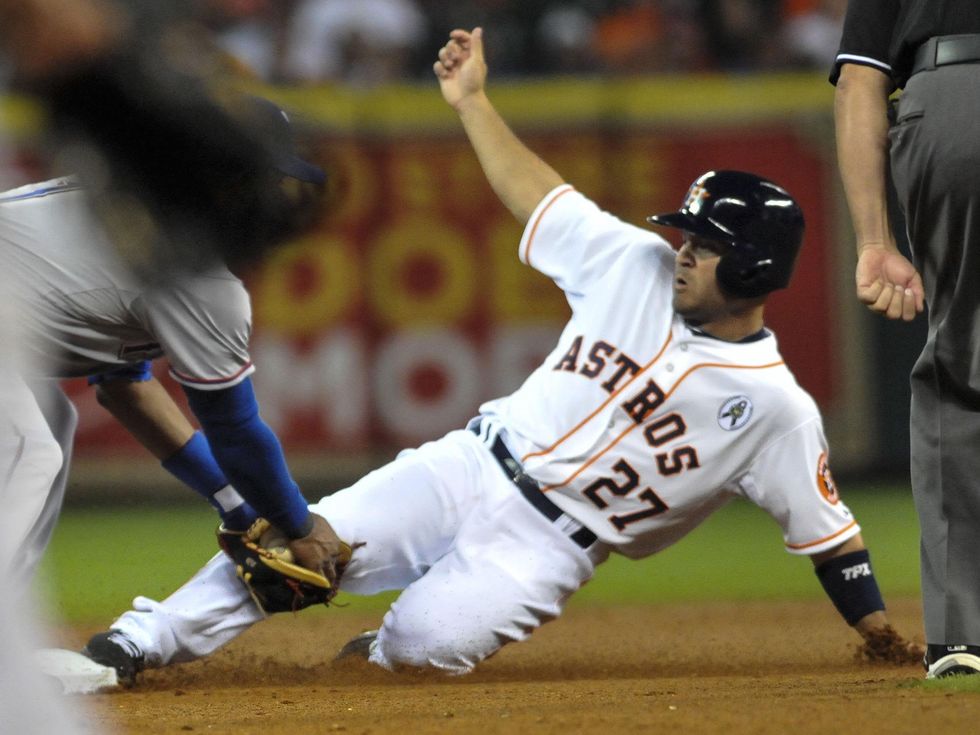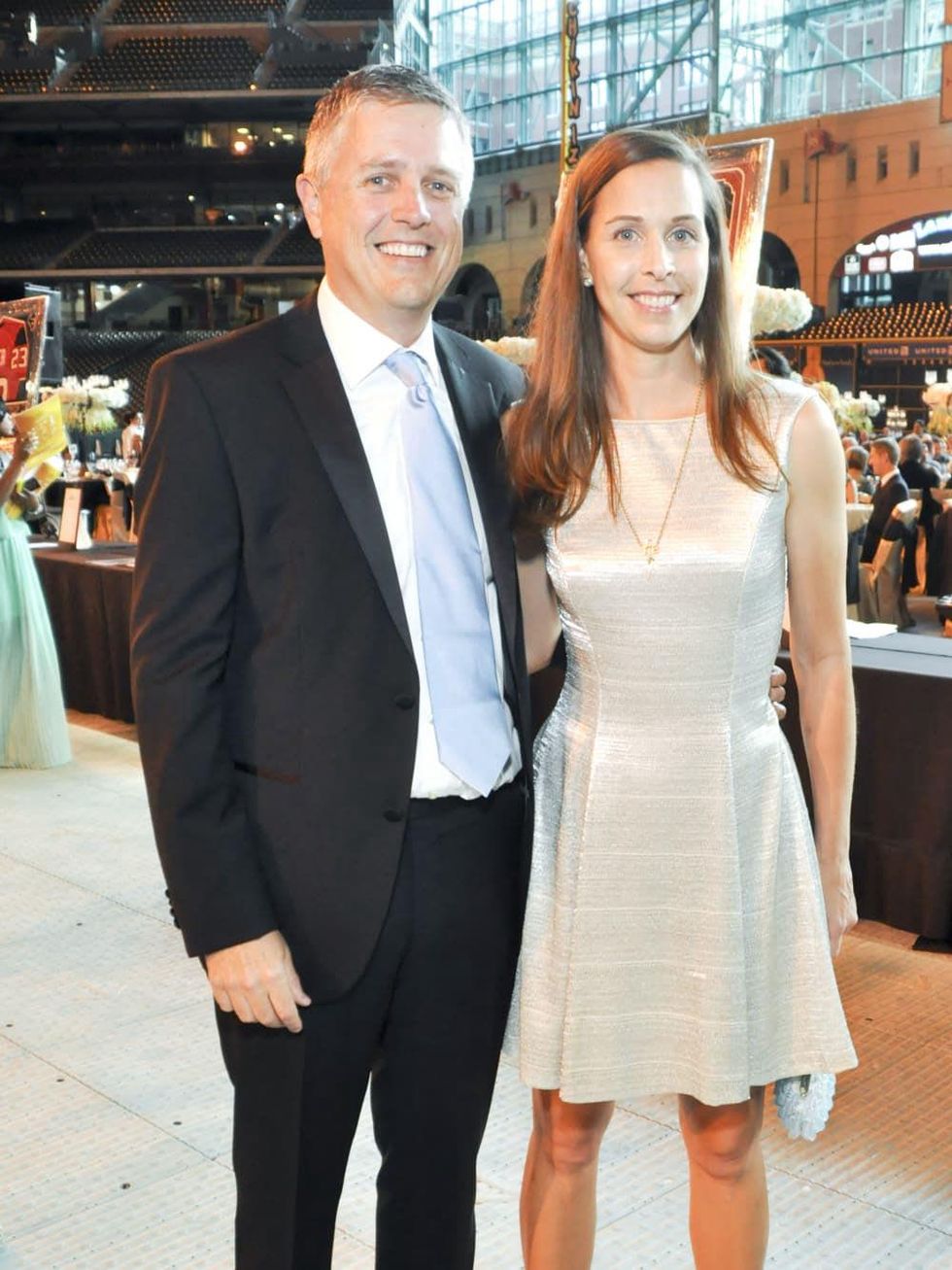Baseball Banter
The days of the cheap, 100-loss Houston Astros are gone: Believe it or not, offseason signings make sense
Perhaps the clearest indication that Houston Astros fans are an increasingly analytical lot was their collective response to the Dec. 3 acquisition of center fielder Dexter Fowler, whose seven seasons with the Colorado Rockies offered a mildly frustrating mixture of tantalizing promise and unfulfilled potential.
The dissenters had their say, of course, making note that Fowler produced a paltry .214/.343/.335 slash line away from Coors Field last season in advance of the $7.35 million in salary he will earn in 2014. Such skepticism, while legitimate, was roundly squashed by a majority intrigued with Fowler, whose speed and overall offensive talent present significant upgrades over Brandon Barnes, who was shuttled to Colorado along with right-hander Jordan Lyles.
And there was little narrative in the analysis of Fowler, who has yet to maximize his speed defensively in the same manner he has on the base paths. There are warts for sure, but an aggressive researching of what Fowler accomplished previously revealed truths that allowed most to rubber stamp the trade. The added bonus of the Astros' willingness to expand their payroll elicited additional applause among fans for it signified a step away from the misery of 2013.
In the weeks that followed the Fowler trade the Astros added free-agent pitchers Scott Feldman, Chad Qualls and Matt Albers before signing Jesse Crain on New Year's Eve. Excluding Crain, the initial quartet will earn $22.8 million in 2014, a startling figure for a franchise that closed 2013 with a $13 million payroll.
Handing Feldman $10 million annually isn't outlandish, particularly if he excels in the role of veteran anchor for a youthful Astros rotation.
Last season, the Astros' first under manager Bo Porter, represented the bottom floor of a rebuilding project led by general manager Jeff Luhnow. By adding Fowler, Feldman, Qualls, Albers and Crain, the Astros made transparent their intentions to methodically inch toward respectability.
In Fowler the Astros welcome a player who ranks among the top 15 outfielders in the National League in baserunning runs added over the past five seasons and just outside the top 25 among NL outfielders in offensive runs added. His defense with the Rockies was poor, but there are projections that the move to Minute Maid Park should allow Fowler an opportunity to improve defensively. For three seasons Fowler has consistently registered as a two-win player, and if he cracks the three-win threshold, as projected, in his first season with the Astros, his salary would not represent something exorbitant.
When the Astros inked Feldman to a three-year, $30 million contract on Dec. 16, that signing was greeted with derision. Feldman is a sub-.500 pitcher (51-56 in his career) with a 4.64 ERA that ranks 50th among all qualified pitchers since he became a starter in 2008. His career walk rate (7.9 percent) would have ranked in the top 60 among all pitchers last season, as would have his strikeout rate over the last three seasons, which has hovered around 17 percent.
Feldman has displayed a moderate penchant for recording ground balls (47.1 percent for his career, which would have placed him in the top 25 among all pitchers last season) and suppressing home runs (his career 10.5 home run/flyball ratio would have ranked in the top 50 last season), so by and large he qualifies as a functionally average starter. What might surprise casual fans is the going rate for average starters, and that offers context to the Feldman deal.
High-Cost Pitching
Right-handers Josh Johnson and Phil Hughes, both of whom have suffered their share of injuries, will earn $8 million in 2014. Right-hander Dan Haren, whose promise has been stalled repeatedly by injuries, will match Feldman and make $10 million. Right-hander Tim Hudson is coming off a gruesome ankle injury yet signed for an average salary of $11.5 million. Left-hander Scott Kazmir reclaimed his career with the Cleveland Indians last season and signed with the Oakland Athletics for an average salary of $11 million.
Handing Feldman $10 million annually isn't outlandish, particularly if he excels in the role of veteran anchor for a youthful Astros rotation likely to feature Jarred Cosart, Brett Oberholtzer, Brad Peacock and Dallas Keuchel this season.
To offset a historically awful bullpen, the Astros opted for a complete overhaul by signing Qualls (two years, $6 million) and Albers (one year, $2.45 million) — both former Astros — and Crain (one year, $3.25 million), a University of Houston product. Qualls, 35, finished 5-2 with a 2.61 ERA over 66 games with the Miami Marlins last season, his ninth consecutive season with at least 50 appearances. His 63.3 ground-ball percentage represented a career high.
Without offering any guarantees, Luhnow appears resolute in his plans to leave those 100-loss seasons behind.
Albers, 30, went 3-1 with a 3.14 ERA over 56 games with the Cleveland Indians and also recorded a career-best ground-ball rate of 63.8 percent. Add Crain, 32, to the mix and the Astros have a strong bullpen foundation in place, one flush with veterans capable of supporting the developing starters.
Crain has lowered his ERA in each of his last three seasons, logging 29 consecutive scoreless innings in 2013 en route to an All-Star Game nod. Over his last three seasons Crain has pitched exceptionally in terms of ERA (2.10), opponents' batting average (.187), and strikeouts per nine innings pitched (10.56).
Individually this quintet doesn't resonate quite like Dwight Howard signing with the Rockets, but the astute comprehend how their additions fit into the Astros' grand rebuilding scheme. Without explicitly offering any guarantees, Luhnow appears resolute in his plans to leave those 100-loss seasons behind.


